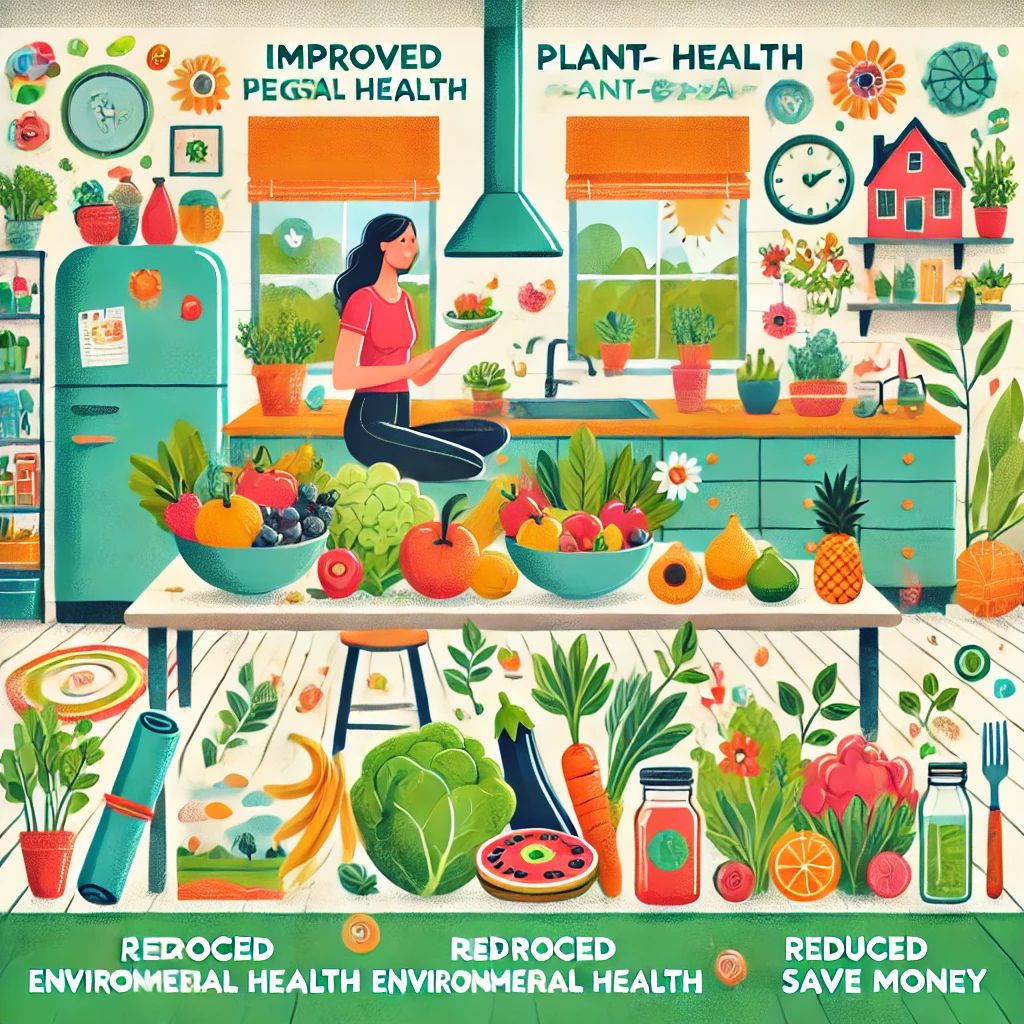
In the vibrant tapestry of dietary choices, the vegetarian lifestyle stands out as a radiant thread, offering a multitude of benefits for those who embrace it. Adopting a vegetarian diet can profoundly impact your health, the environment, and even your wallet. This lifestyle, rich in plant-based foods, invites you to explore a world of vibrant flavors and wholesome nourishment. Here, we delve into the myriad benefits of a vegetarian lifestyle and how it can enhance your overall well-being.
Boosting Physical Health
One of the most compelling reasons to adopt a vegetarian lifestyle is the profound impact it can have on your physical health. Plant-based diets are packed with essential nutrients that support optimal health.
Heart Health: Vegetarian diets are typically lower in saturated fats and cholesterol, which can significantly reduce the risk of heart disease. Foods rich in fiber, such as fruits, vegetables, whole grains, and legumes, help maintain healthy blood pressure and cholesterol levels.Weight Management: A plant-based diet is often lower in calories and higher in fiber, which can help with weight management. The abundance of whole foods in a vegetarian diet promotes a feeling of fullness and helps control overeating.Digestive Health: High-fiber foods, which are staples in a vegetarian diet, support a healthy digestive system. Fiber aids in regular bowel movements and can prevent digestive disorders such as constipation and diverticulitis.Disease Prevention: A diet rich in fruits, vegetables, and whole grains is loaded with antioxidants and phytochemicals that can reduce the risk of chronic diseases, including certain cancers, type 2 diabetes, and hypertension.Enhancing Mental Well-Being
The benefits of a vegetarian lifestyle extend beyond physical health, offering significant advantages for mental and emotional well-being.
Mood Improvement: Certain plant-based foods, such as leafy greens and nuts, contain nutrients like folate and omega-3 fatty acids, which are known to improve mood and reduce symptoms of depression.Increased Energy Levels: A diet rich in whole, unprocessed foods provides sustained energy throughout the day. Unlike processed foods, which can cause energy crashes, plant-based foods stabilize blood sugar levels, keeping you energized and focused.Better Sleep: Nutrient-dense foods can enhance sleep quality. Foods high in magnesium, such as spinach and almonds, help relax muscles and improve sleep patterns.Positive Environmental Impact
Adopting a vegetarian lifestyle is also a powerful way to contribute to environmental sustainability. The production of plant-based foods generally requires fewer resources and generates less pollution than animal farming.
Reduced Carbon Footprint: Plant-based diets have a lower carbon footprint compared to diets that include meat. Producing vegetables, grains, and legumes requires less energy, land, and water, leading to a significant reduction in greenhouse gas emissions.Conservation of Resources: Growing plants for food typically uses less water and land compared to raising animals. This conservation of resources helps protect natural habitats and biodiversity.Waste Reduction: The production of plant-based foods generates less waste and pollution, contributing to cleaner air and water.Financial Savings
Living a vegetarian lifestyle can also be economically beneficial. Plant-based foods, especially when purchased in bulk, can be more affordable than meat and processed foods.
Lower Grocery Bills: Whole grains, beans, lentils, and seasonal fruits and vegetables are often less expensive than meat and processed foods. By focusing on these staples, you can significantly reduce your grocery bills.Reduced Healthcare Costs: A vegetarian diet can lead to better health outcomes, potentially reducing the need for medical treatments and medications. Preventing chronic diseases through a healthy diet can result in substantial long-term savings.Practical Tips for Embracing a Vegetarian Lifestyle
Transitioning to a vegetarian lifestyle doesn't have to be daunting. Here are some practical tips to help you get started and make the most of this healthy way of living:
Start Gradually: If you're new to vegetarianism, start by incorporating more plant-based meals into your diet gradually. Begin with one or two meatless days per week and increase from there.Explore New Foods: Embrace the variety of plant-based foods available. Experiment with different grains, legumes, vegetables, and fruits to discover new favorites.Learn to Cook: Cooking at home allows you to control ingredients and experiment with delicious vegetarian recipes. Invest in a good vegetarian cookbook or explore online resources for inspiration.Plan Your Meals: Planning your meals ahead of time can ensure a balanced diet and make grocery shopping more efficient. Include a variety of foods to cover all essential nutrients.Seek Support: Join vegetarian groups or communities, either locally or online, to share experiences, recipes, and tips. Support from others can make the transition smoother and more enjoyable.Conclusion
Embracing a vegetarian lifestyle offers a wealth of benefits that extend far beyond the dinner plate. From boosting physical health and enhancing mental well-being to contributing to environmental sustainability and saving money, the advantages are manifold. By incorporating more plant-based foods into your diet, you can embark on a journey toward a healthier, more balanced, and fulfilling life. Let the vibrant world of vegetarianism nourish your body, mind, and spirit, and lead you towards a brighter, more sustainable future.
The article was prepared by Hubert Lam.



